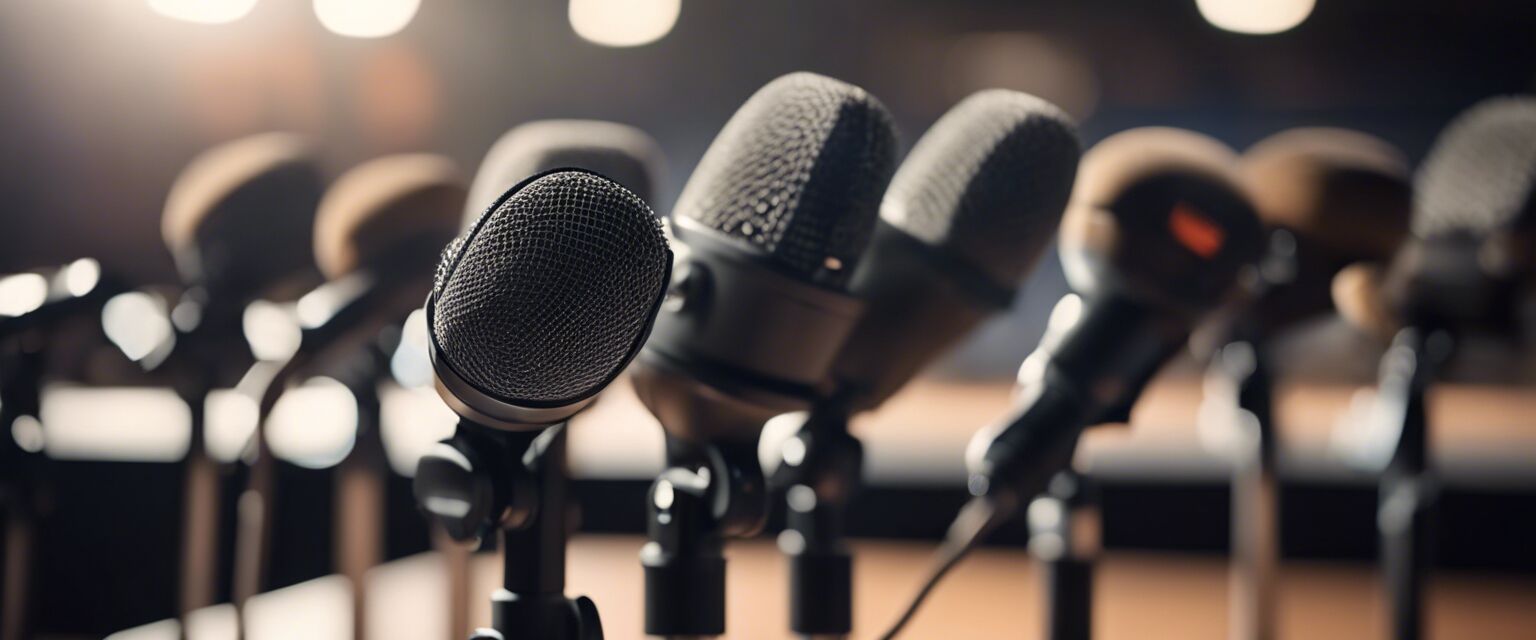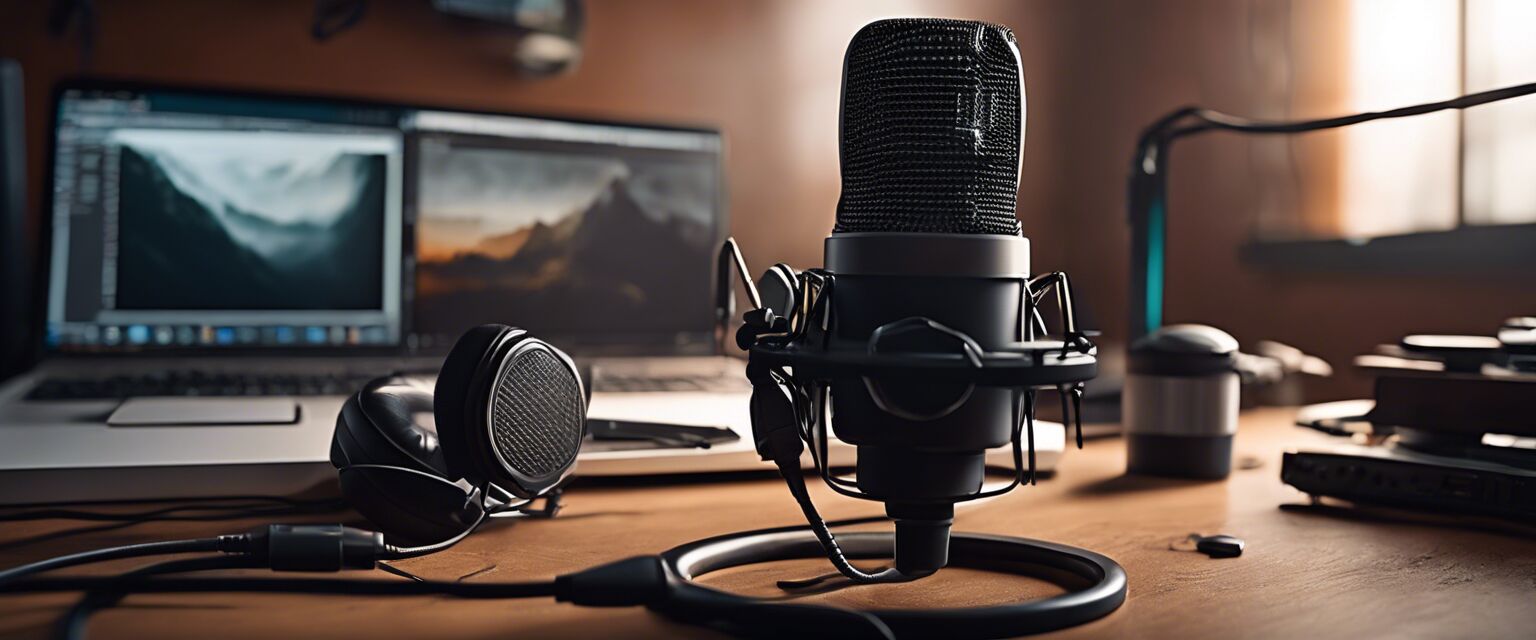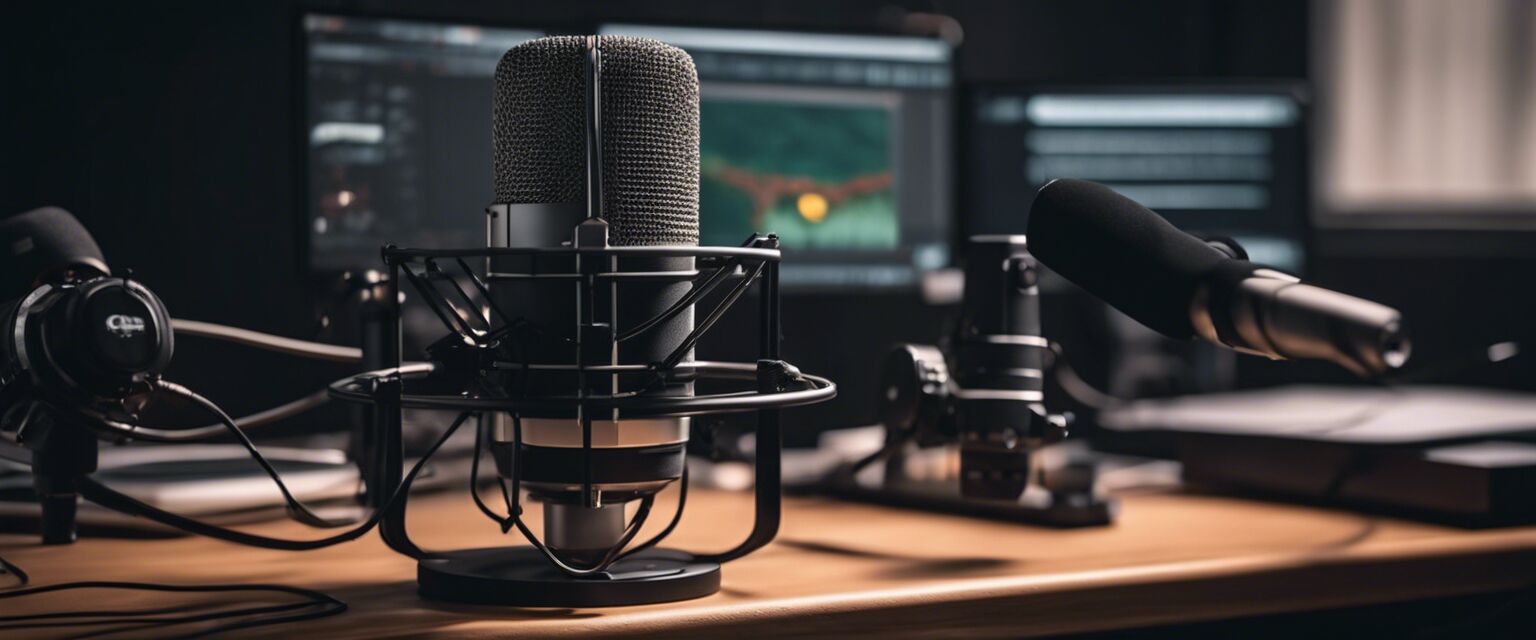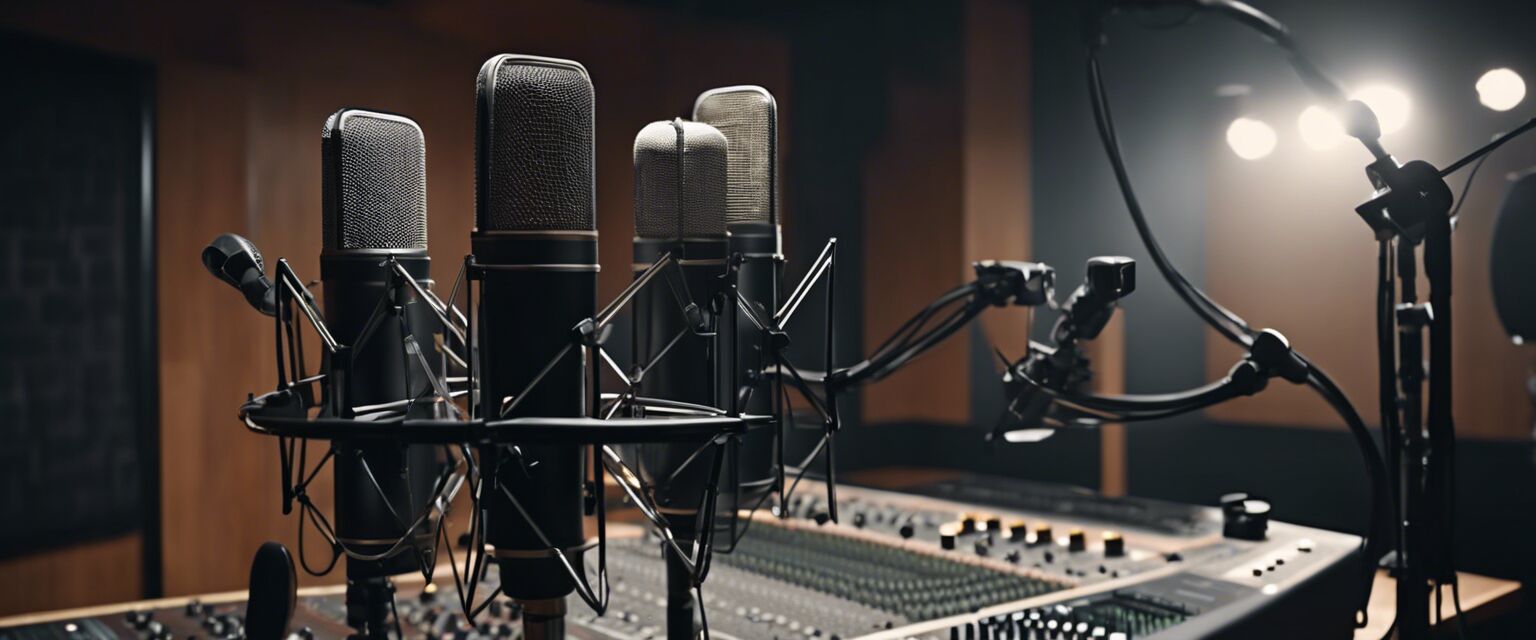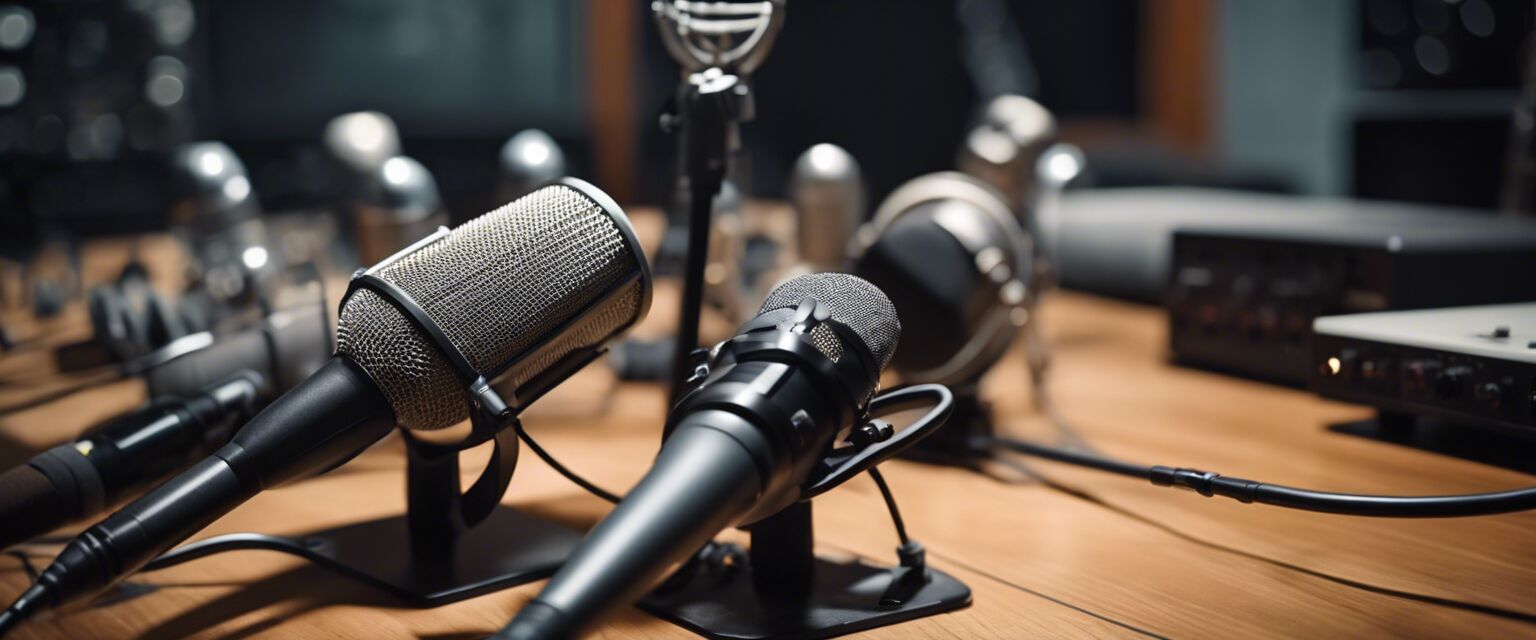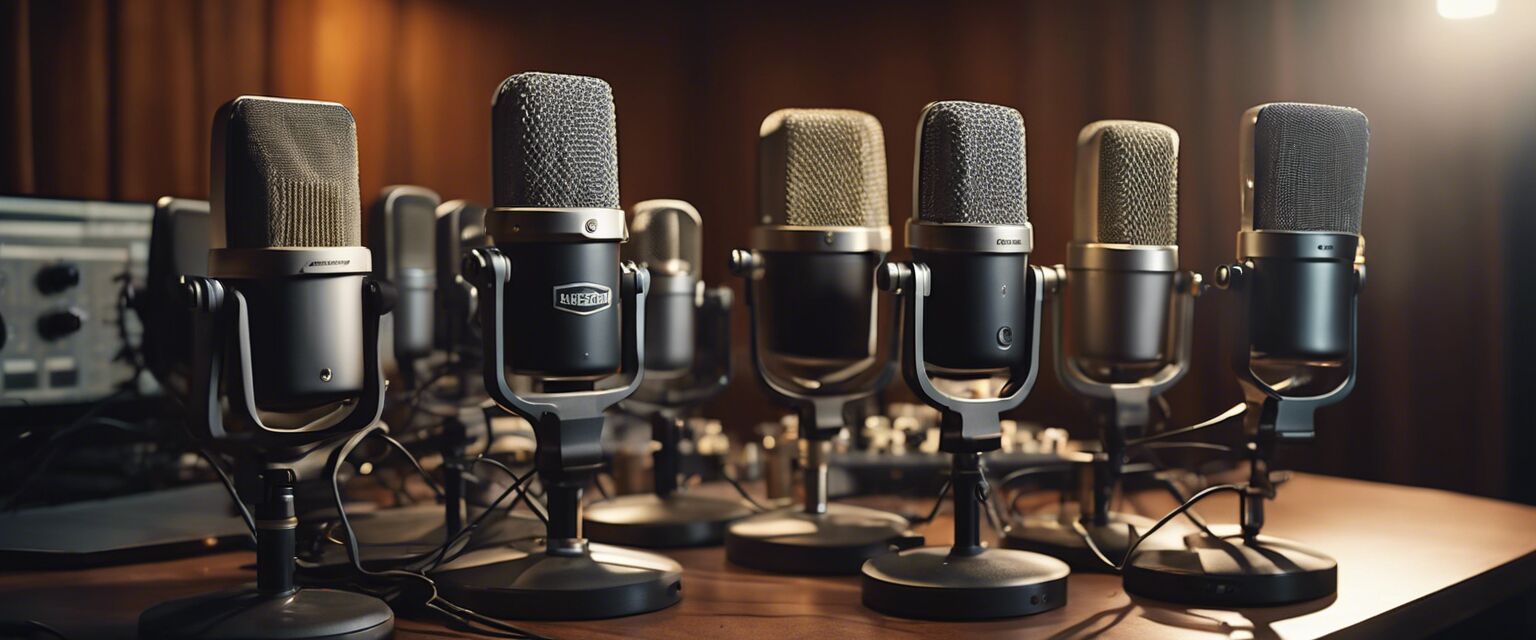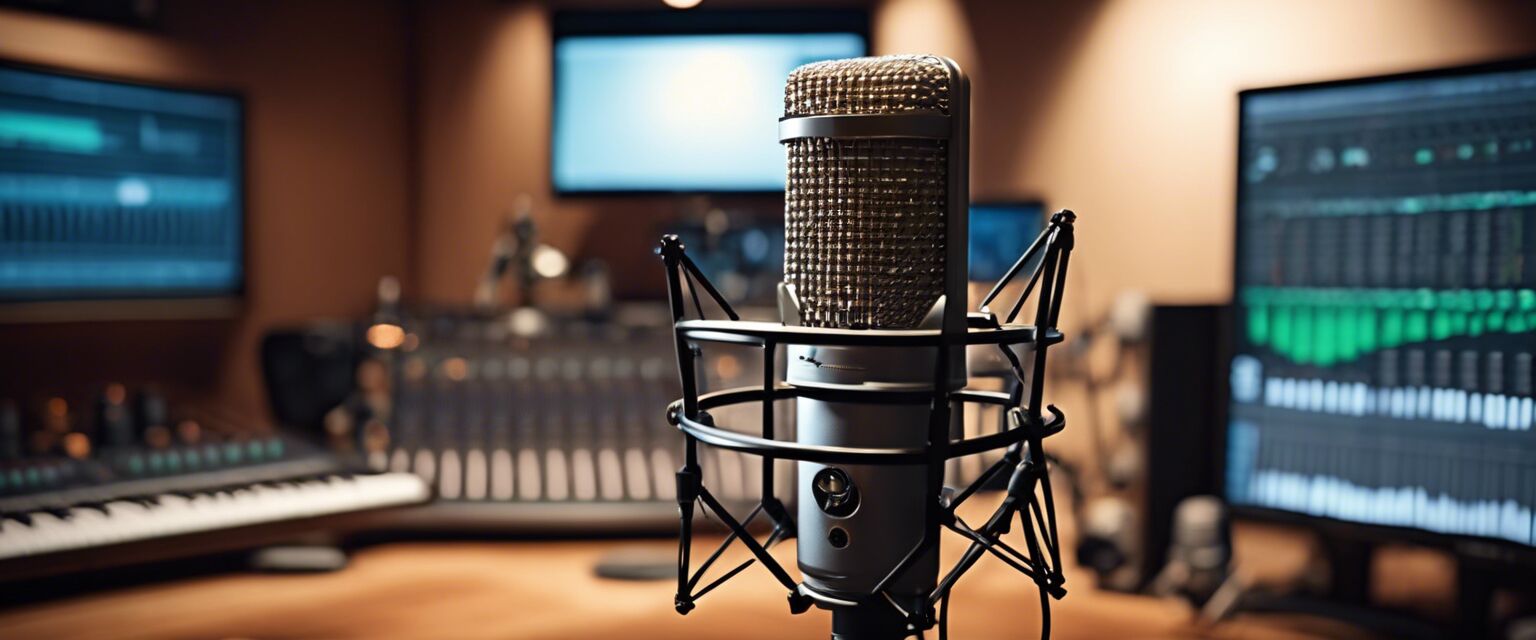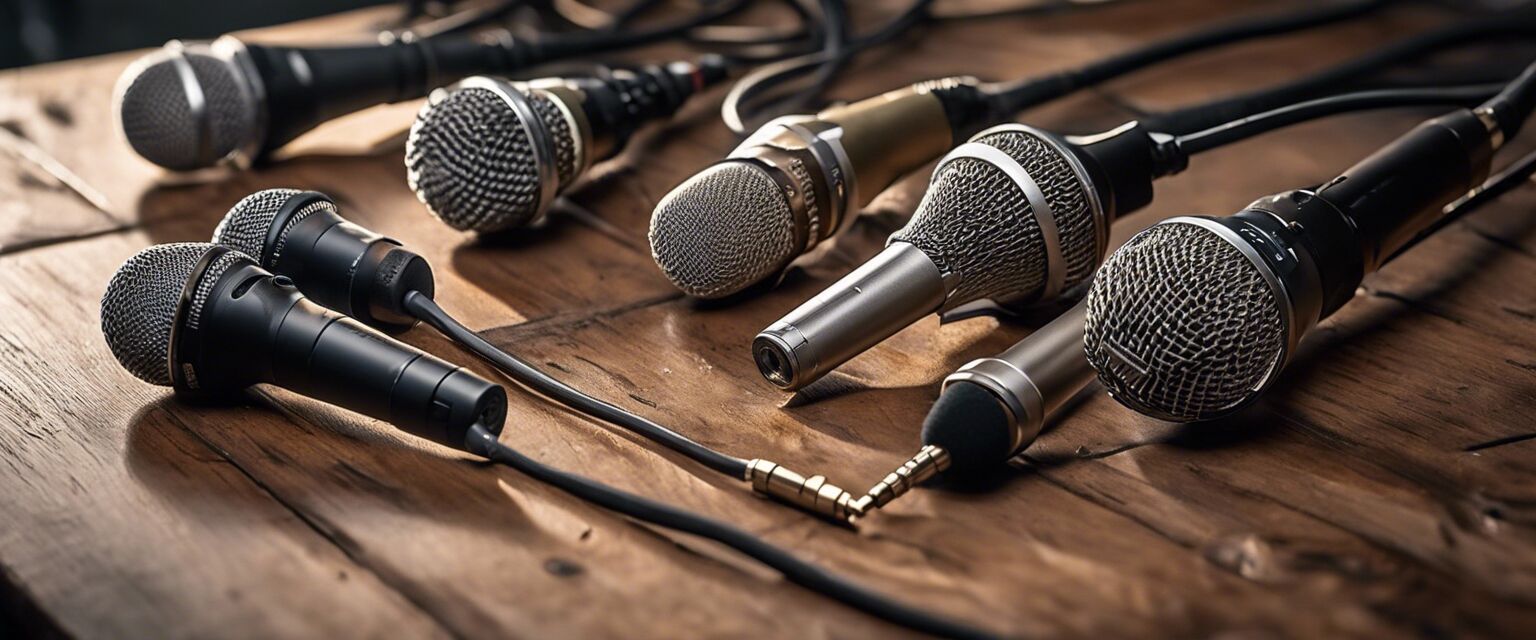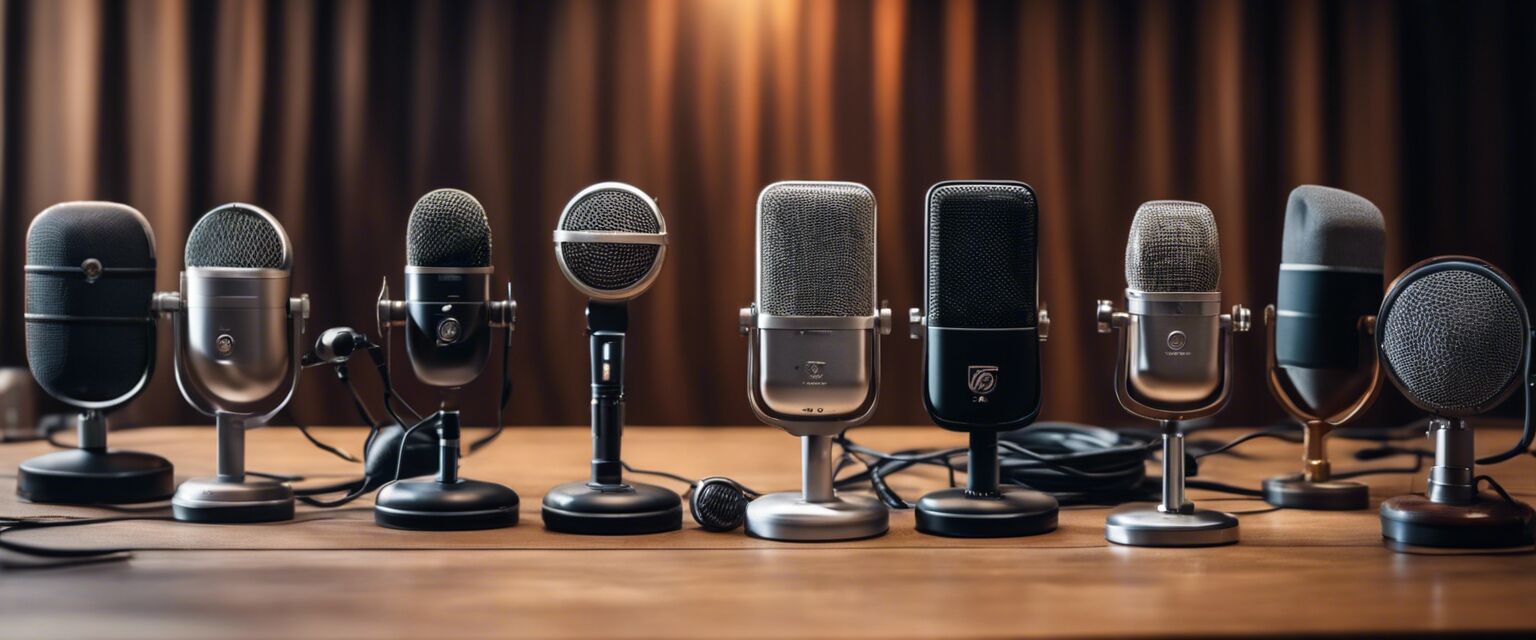
Best Vocal Microphones
When it comes to capturing the perfect vocal recording, having the right microphone can make all the difference. Whether you're a professional singer, podcaster, or voiceover artist, finding the best vocal microphone for your needs can be a daunting task.
Key Takeaways
- Vocal microphones are designed to capture the nuances of the human voice.
- Condenser microphones are ideal for recording vocals in a studio setting.
- Dynamic microphones are better suited for live performances and loud environments.
- USB microphones are a great option for podcasters and voiceover artists.
What Makes a Good Vocal Microphone?
A good vocal microphone should be able to capture the subtleties of the human voice, from the softest whispers to the loudest belts. Here are some key factors to consider when choosing a vocal microphone:
| Feature | Description |
|---|---|
| Polar Pattern | Determines how the microphone picks up sound. Common patterns include cardioid, omnidirectional, and bidirectional. |
| Frequency Response | The range of frequencies the microphone can capture. A wider range means a more accurate representation of the voice. |
| Sensitivity | How well the microphone can pick up quiet sounds. More sensitive microphones are better suited for soft vocals. |
Types of Vocal Microphones
There are several types of microphones that are well-suited for vocal recordings. Here are some of the most popular options:
- Condenser Microphones: Ideal for studio recordings, condenser microphones offer a high level of detail and accuracy.
- Dynamic Microphones: Better suited for live performances, dynamic microphones can handle high sound pressure levels.
- USB Microphones: Perfect for podcasters and voiceover artists, USB microphones connect directly to a computer.
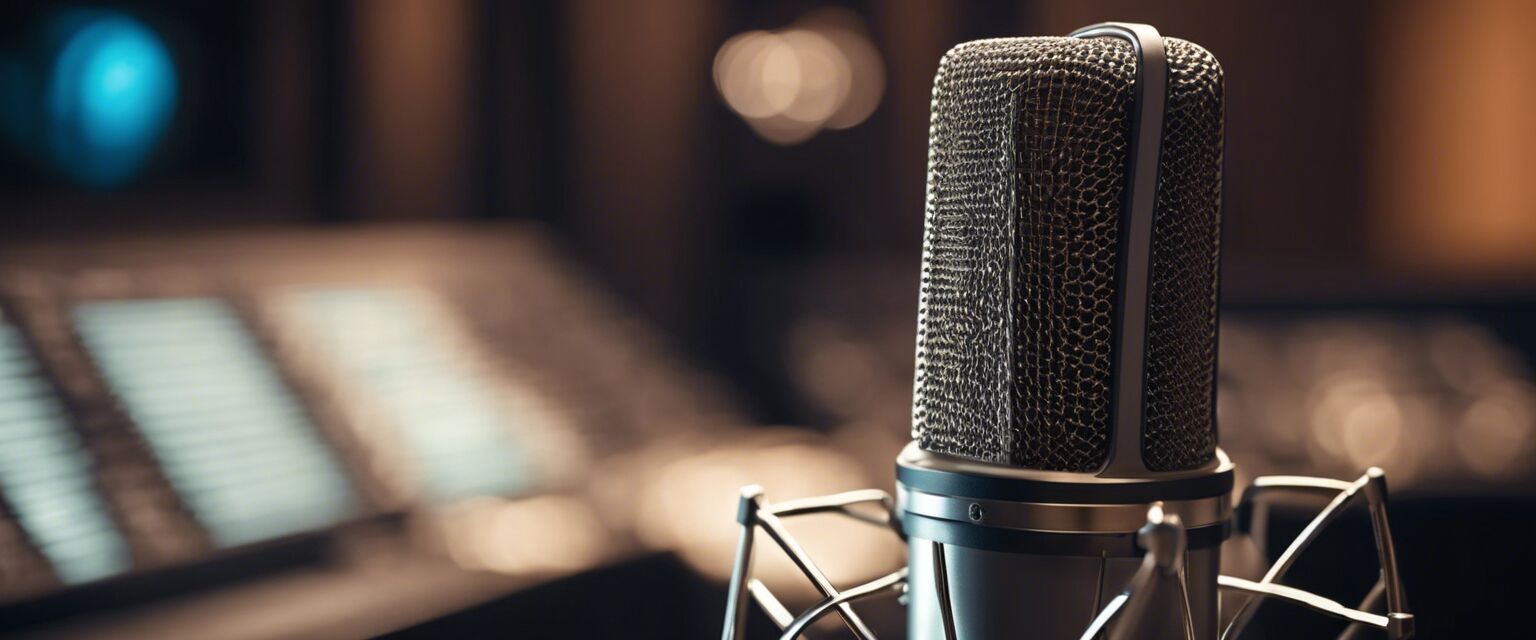
Studio Microphones vs. Live Microphones
When it comes to vocal microphones, there are two main categories: studio microphones and live microphones. Here's how they differ:
| Feature | Studio Microphones | Live Microphones |
|---|---|---|
| Sensitivity | High | Low |
| Frequency Response | Wide | Narrow |
| Handling Noise | Low | High |
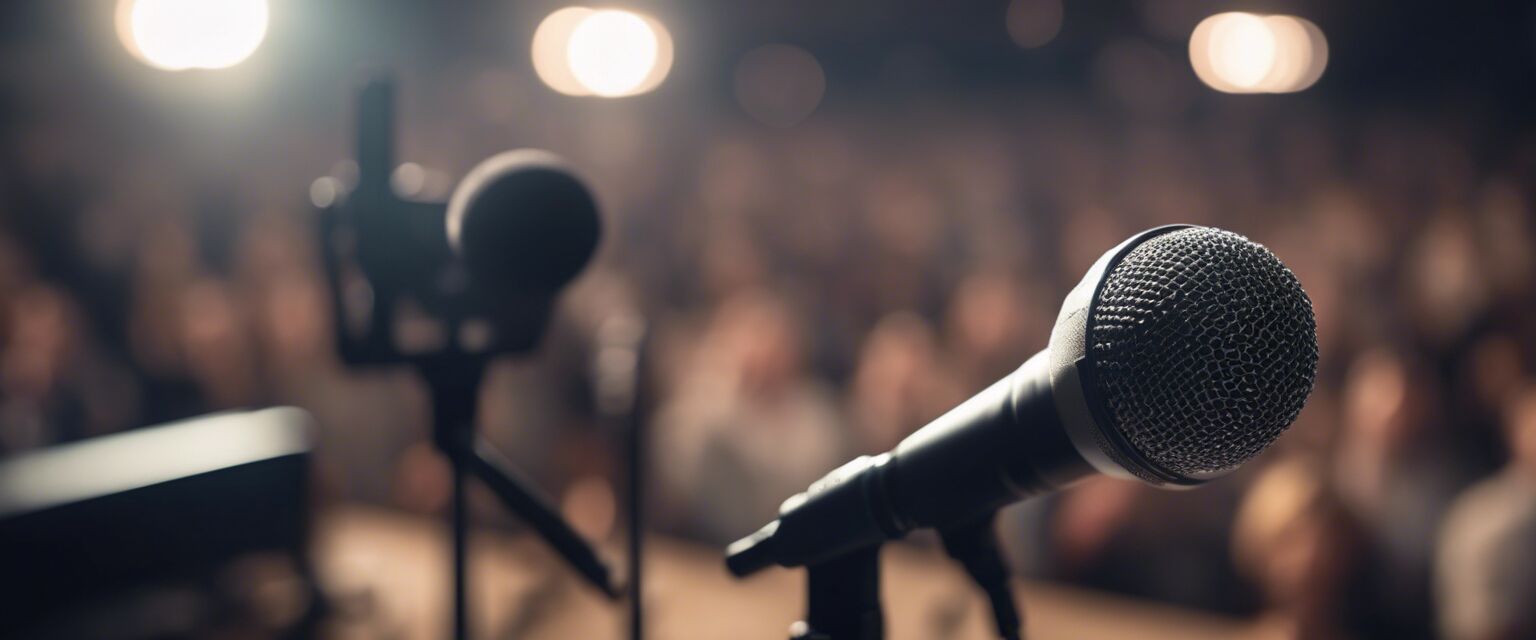
USB Microphones for Podcasting and Voiceover
USB microphones have become increasingly popular among podcasters and voiceover artists due to their ease of use and high-quality sound. Here are some benefits of using a USB microphone:
- Easy to set up and use
- High-quality sound without the need for additional equipment
- Portable and compact design
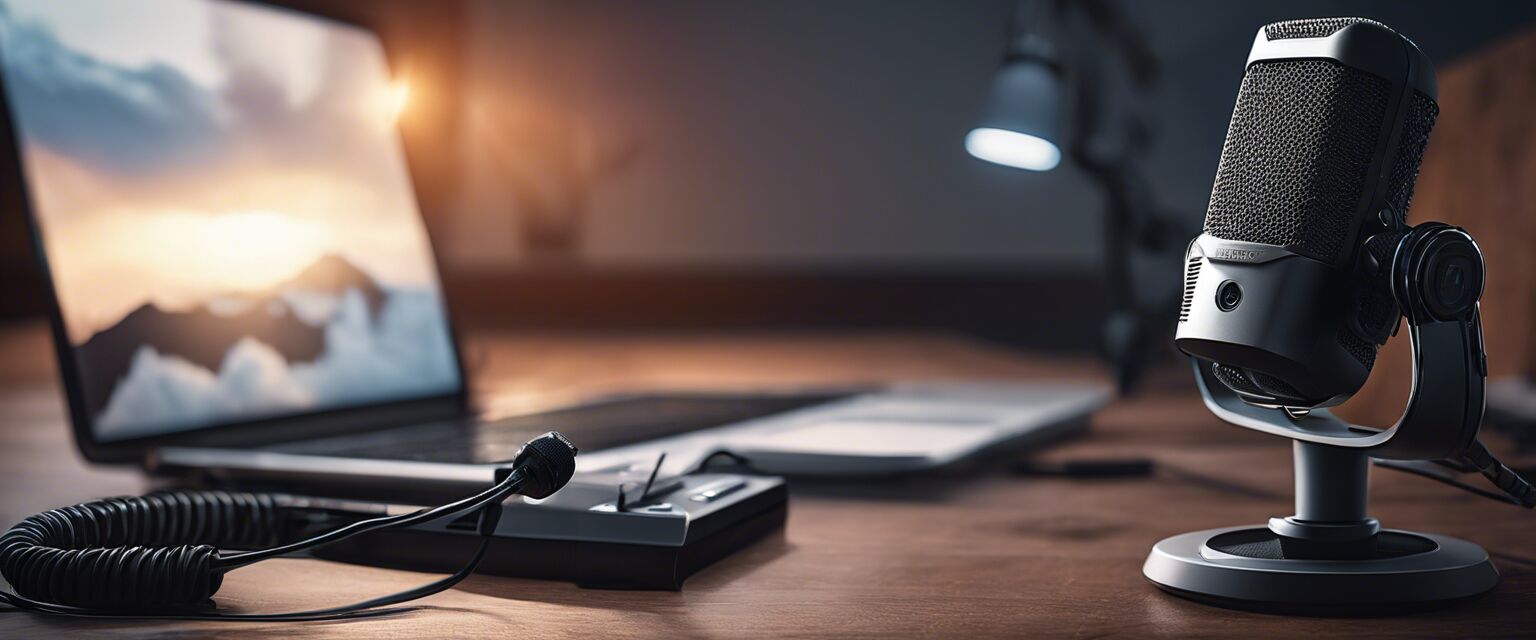
Pros
- High-quality sound
- Versatile and can be used in a variety of settings
- Durable and can withstand heavy use
Cons
- Can be expensive
- May require additional equipment for optimal sound
- May not be suitable for loud environments
Beginners Section
If you're new to recording vocals, here are some tips to get you started:
- Choose a microphone that fits your budget and recording style
- Experiment with different polar patterns and frequency responses
- Invest in a good pair of headphones for accurate monitoring
In conclusion, finding the best vocal microphone for your needs requires considering several factors, including the type of recording you're doing, your budget, and your personal preferences. By understanding the different types of microphones and their features, you can make an informed decision and capture the perfect vocal recording.
